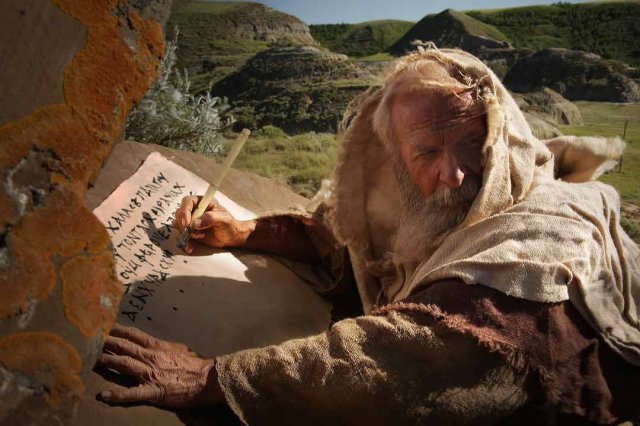Question
Gramps,
Can you explain what you think of Revelation 10? To me it sounds just like the Book of Mormon. Are there any other scriptures like this in the Bible?
Deyvson
Answer
Deyvson,
Revelation 10 deals with John’s prophetic calling to publicly minister. The Revelator has seen and heard some unspeakable things. Being an ever-faithful witness he records what he can, but exercises the strictest obedience in not recording what he shouldn’t (vs 4). Before proceeding with the rest of the vision, the angel instructs John to receive his mission and what he shall preach.
This method of commanding a prophet to eat the divine word serves as a symbol of internalization and gives hearers a hint of the nature of the message. Notably, this is best demonstrated by Ezekiel, the prophet of most influence in John’s apocalypse. The Old Testament seer was given a most frightful book, with writing running on both sides of “lamentation, and mourning, and woe” (Ezek 2:8-10, 3:1-3). Because it was the word of the Lord it was “in my mouth as honey for sweetness”, but as with any unsettling meal it “fill[ed his] bowels”. Those listening to Ezekiel would immediately know from this imagery that 1) Ezekiel is claiming a mandate from the Lord, and 2) it will not be a pleasant message.
Similarly, John eats a little book that is “sweet as honey” to taste but doesn’t settle well, giving him a bitter belly (10:9-10). This is John’s mission and message. Those reading the book of Revelation should now be cued that 1) John is claiming a mandate from the Lord, and 2) it will not be a pleasant message. The general context of the entire book is for the saints to flee from Babylon and then stand in holy places – something that will be quite uncomfortable for anyone who feels at home in Babylon. John is further told that he is to take this message to “many peoples, and nations, and tongues, and kings” (vs 11). And just as Ezekiel specifies that he is only sent to Israel, so also does Latter-day revelation confirms that John will similarly limit himself. Eating the book “was a mission, and an ordinance for him to gather the tribes of Israel” (D&C 77:14).
Since you mentioned the Book of Mormon, you will find that there is a similar pattern of prophets receiving their commission for heavenly messengers, and then receiving the text of their message to preach. We are first introduced to Lehi as he reads from a book in heaven, and he is then mocked specifically for “the things which he read in the book” (1 Nephi 1:8-14, 18-19). Similarly, this dispensation was kicked off with an angel bringing a book to Joseph Smith, which then became the message of the restoration.
Gramps







